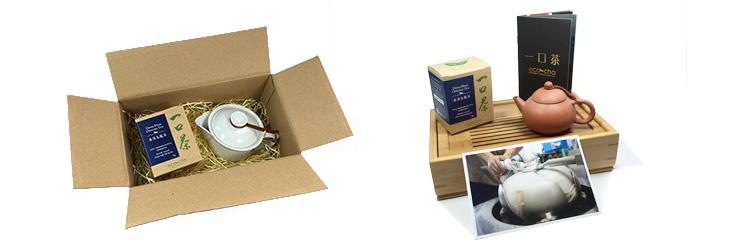
Finally - Eco-Cha has A Tea Subscriber's Club!
While we take personal pride in offering our small, carefully selected line of Taiwanese teas, we have also wanted to share our ongoing discovery of unique batches of tea on a more intimate level. For years now, we've thought about establishing a tea club where its members could share in our exploration and discovery of batches of tea that are simply too rare and/or small to offer as a product for purchase. And finally, after some tactful inquiries as to whether we might be able to procure small amounts of these private batches, we are ready to begin sharing our journey into the world of tea.

Simply by visiting our friends who are tea farmers and purveyors, we come across teas that are not found outside of their homes. In the course of a rambling conversation over a pot of tea, they will be prompted to pull out another, and another batch of tea to scoop into their magic little gongfu teapots that just keep brewing copious amounts of tea in its infinite diversity. This, in short, is what we live for, and why we live where we do.

Even within the local industry of Central Taiwan, we find enough variety to keep us intrigued for decades-on-end. And now that we are officially establishing a subscription program, we are compelled to go beyond our local stomping grounds in search of unique teas to share. We will be choosing small and otherwise unavailable batches of tea that will be divvied up into 75g shares and distributed to our club members on a monthly basis.

So what kinds of teas are we talking about when we say unique? Well, mostly Oolongs, but also the occasional extraordinary Black Tea, and who knows what other surprises might be found? But here are a few examples: Leftovers from prize-winning teas in local competitions that amount to a few kilos. Unique bug-bitten batches of tea that are processed to become Concubine Tea or Oriental Beauty or Honey Black Tea. Specially harvested "in-between seasons" batches that result from seasonal quirks in the unpredictable cultivation of tea, such as young leaves that are harvested after the spring harvest and before the plants are pruned back in preparation for the remaining harvests of the year, or what is called "Dong Pian Cha" - a late winter harvest of the remaining growth that was too immature at the winter harvest. These are representatives of what makes tea a cultural experience.
This club will allow you to experience tea in a way that is, well - distinguished. It is clearly beyond the quality-consistent standard production of what is generally referred to as specialty tea. It is expressly offering tea that we find extraordinary. And this truly is the heart of our mission.

